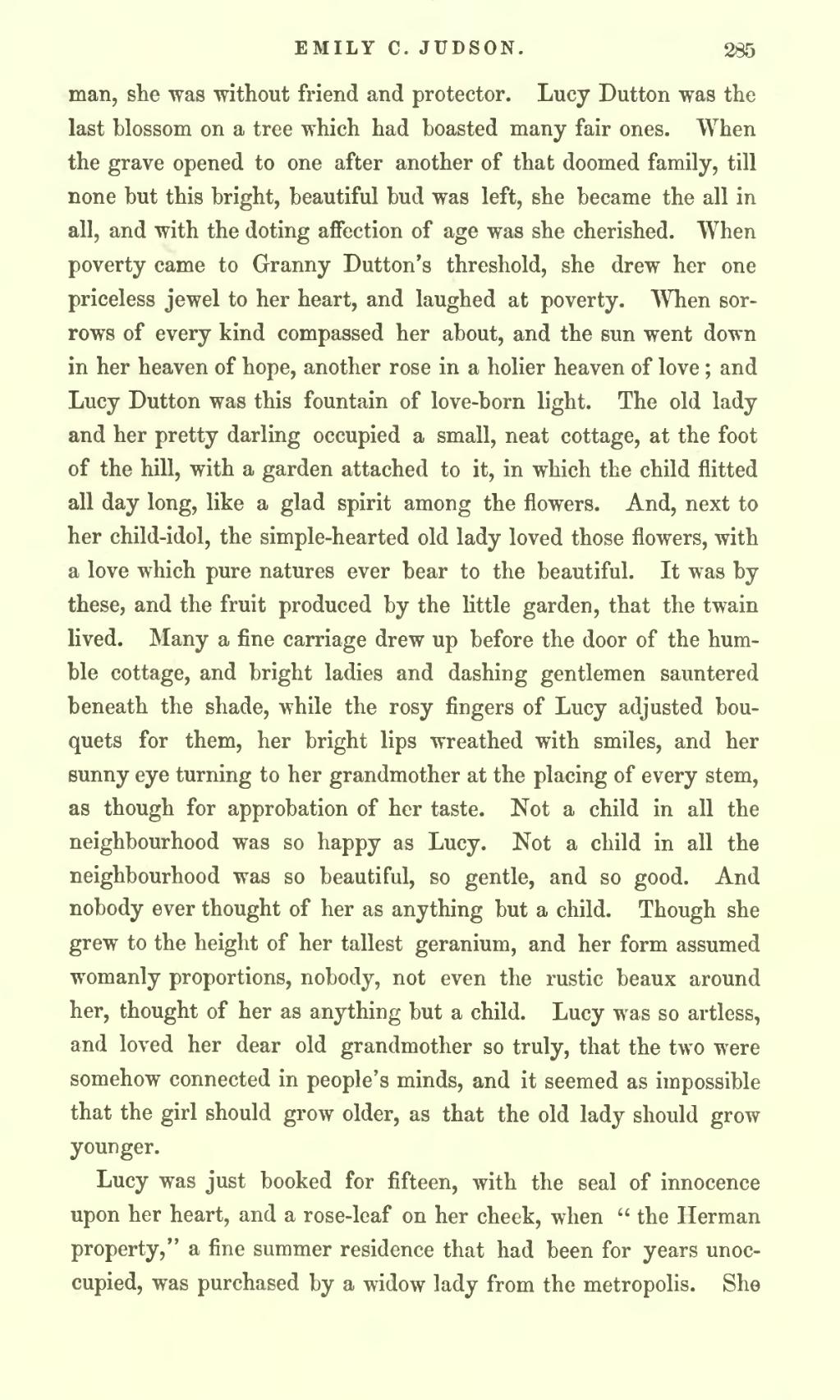man, she was without friend and protector. Lucy Button was the last blossom on a tree which had boasted many fair ones. When the grave opened to one after another of that doomed family, till none but this bright, beautiful bud was left, she became the all in all, and with the doting affection of age was she cherished. When poverty came to Granny Button’s threshold, she drew her one priceless jewel to her heart, and laughed at poverty. When sorrows of every kind compassed her about, and the sun went down in her heaven of hope, another rose in a holier heaven of love; and Lucy Button was this fountain of love-born light. The old lady and her pretty darling occupied a small, neat cottage, at the foot of the hill, with a garden attached to it, in which the child flitted all day long, like a glad spirit among the flowers. And, next to her child-idol, the simple-hearted old lady loved those flowers, with a love which pure natures ever bear to the beautiful. It was by these, and the fruit produced by the little garden, that the twain lived. Many a fine carriage drew up before the door of the humble cottage, and bright ladies and dashing gentlemen sauntered beneath the shade, while the rosy fingers of Lucy adjusted bouquets for them, her bright lips wreathed with smiles, and her sunny eye turning to her grandmother at the placing of every stem, as though for approbation of her taste. Not a child in all the neighbourhood was so happy as Lucy. Not a child in all the neighbourhood was so beautiful, so gentle, and so good. And nobody ever thought of her as anything but a child. Though she grew to the height of her tallest geranium, and her form assumed womanly proportions, nobody, not even the rustic beaux around her, thought of her as anything but a child. Lucy was so artless, and loved her dear old grandmother so truly, that the two were somehow connected in people’s minds, and it seemed as impossible that the girl should grow older, as that the old lady should grow younger.
Lucy was just booked for fifteen, with the seal of innocence upon her heart, and a rose-leaf on her cheek, when “the Herman property,” a fine summer residence that had been for years unoccupied, was purchased by a widow lady from the metropolis. She
